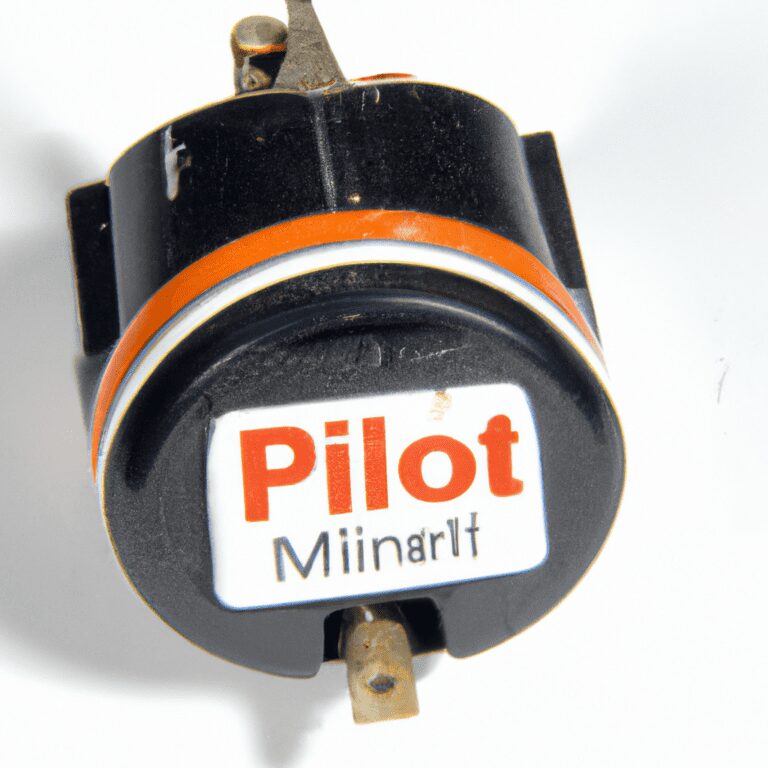What Are Effective Diagnostic Tools for Ignition System Problems?
Effective diagnostic tools for ignition system problems include a code reader and a multimeter. These tools can quickly identify and troubleshoot issues with ignition coils, spark plugs, and other components.
In addition to these tools, a mechanic may also use a spark tester and a digital oscilloscope to further diagnose ignition system problems. By using these diagnostic tools, mechanics can efficiently pinpoint the source of the issue and make necessary repairs, ensuring optimal performance of the ignition system and preventing further engine damage.
Whether you are a professional mechanic or a car owner, having access to these diagnostic tools can save time, money, and frustration when dealing with ignition system problems.
Common Ignition System Issues
To effectively diagnose common ignition system issues, utilizing diagnostic tools such as OBDII scanners and ignition testers is crucial. These tools aid in pinpointing issues with spark plugs, ignition coils, and overall system functionality, ensuring swift and accurate troubleshooting for optimal vehicle performance.
Symptoms Of Ignition System Problems
When it comes to diagnosing ignition system problems, it’s crucial to be aware of the common symptoms that indicate a malfunction. By recognizing the signals your vehicle is giving you, you can address the issue promptly, avoiding further damage and costly repairs. Here are the most common symptoms of ignition system problems: 1. Engine misfiring: An engine misfire occurs when the spark plug fails to ignite the fuel-air mixture in the combustion chamber. This results in a noticeable hesitation, jerking, or lurching sensation while driving. It may also cause the engine to vibrate or produce a rough idle. 2. Difficulty starting the engine: If your vehicle is reluctant to start or requires multiple attempts before it fires up, it could indicate ignition system issues. This symptom is often accompanied by a clicking noise or the sound of the starter motor not engaging properly. 3. Decreased fuel efficiency: A faulty ignition system can affect the fuel efficiency of your vehicle, leading to increased fuel consumption. If you notice that you’re making more frequent trips to the gas station than usual, it may be time to check your ignition system. 4. Stalling or sudden engine shutdown: An unreliable ignition system can cause your engine to stall or shut down unexpectedly, even while you’re driving. This can be dangerous, especially if it occurs in heavy traffic or at high speeds. If your engine suddenly loses power, it’s essential to have the ignition system inspected. 5. Illuminated check engine light: When the ignition system encounters a problem, it often triggers the vehicle’s onboard diagnostics system, which then illuminates the check engine light on your dashboard. While this warning light can indicate various issues, it’s always worth checking the ignition system as a potential culprit.Causes Of Ignition System Failures
Understanding the causes of ignition system failures can help you accurately diagnose and address the problem. Here are some common culprits behind ignition system issues: 1. Worn or damaged spark plugs: Over time, spark plugs can wear out or become damaged, leading to poor combustion and erratic engine performance. It’s important to regularly inspect and replace spark plugs as recommended by your vehicle’s manufacturer. 2. Faulty ignition coils: Ignition coils are responsible for converting low voltage from the battery into the high voltage needed to create a spark. If an ignition coil fails, it can disrupt the ignition process and cause misfires or engine issues. 3. Malfunctioning crankshaft position sensor: The crankshaft position sensor determines the position and speed of the crankshaft, allowing the ignition system to fire the spark plugs at the correct time. If this sensor fails, it can result in engine stalling, misfires, or difficulty starting the vehicle. 4. Ignition switch problems: The ignition switch controls the power distribution to various components of the ignition system. When the switch malfunctions, it can prevent the vehicle from starting or cause intermittent power loss. 5. Wiring or connection issues: Loose or damaged wiring connections within the ignition system can disrupt electrical flow, leading to ignition system failures. Corrosion, frayed wires, or faulty connections can all contribute to problems. Investigating and identifying the root cause of ignition system problems is essential for effective troubleshooting. Whether it’s a simple spark plug replacement or a more complex issue with the ignition components, addressing these problems promptly will ensure your vehicle runs smoothly and reliably.
Credit: www.amazon.com
Diagnostic Tools Overview
When your vehicle’s ignition system malfunctions, it can lead to poor performance, difficulty starting, and even engine failure. To identify and resolve ignition system problems, you need effective diagnostic tools that can accurately pinpoint the issues. From onboard diagnostic (OBD) scanners to multimeter testing, these tools provide valuable insights into the health of your ignition system. In this section, we will explore the features and benefits of these essential diagnostic tools.
Onboard Diagnostic (obd) Scanners
If you want a quick and effective way to diagnose ignition system problems, OBD scanners are a must-have. These handheld devices communicate with your vehicle’s onboard computer to retrieve diagnostic trouble codes (DTCs). DTCs are specific codes that indicate which component of your ignition system is malfunctioning. With an OBD scanner, you can easily read these codes and determine the exact issue.
Not only do OBD scanners provide DTCs, but they also offer real-time data and live sensor readings. This allows you to monitor various parameters such as engine RPM, coolant temperature, and throttle position. By comparing these values to their expected ranges, you can quickly identify anomalies and narrow down the problematic area. OBD scanners are incredibly user-friendly, as they often come with clear instructions and user-friendly interfaces.
Multimeter Testing
When it comes to diagnosing ignition system problems, multimeter testing is an indispensable technique. This tool allows you to measure voltage, resistance, and current flow, providing valuable insights into the electrical components of your ignition system. Multimeter testing is particularly useful when dealing with ignition coils, spark plug wires, and other electrical connections.
To begin multimeter testing, start by setting the multimeter to the appropriate voltage or resistance range. Then, carefully connect the multimeter leads to the component you want to test. By following the appropriate testing procedures, you can determine whether the component is functioning within the expected parameters. Multimeter testing is a precise and reliable method that helps identify faulty ignition system components.
- Measure voltage, resistance, and current flow with a multimeter
- Precisely test ignition coils, spark plug wires, and electrical connections
- Determine if components are functioning within expected parameters
With onboard diagnostic (OBD) scanners and multimeter testing at your disposal, diagnosing ignition system problems becomes a manageable task. These diagnostic tools provide accurate and reliable data, allowing you to quickly identify and resolve any issues with your vehicle’s ignition system.
Advanced Diagnostic Techniques
A crucial aspect of diagnosing ignition system problems involves utilizing advanced diagnostic techniques that provide detailed insights into the root cause of issues.
Ignition Coil Testing
- Check for continuity in ignition coil wiring.
- Measure resistance across primary and secondary windings.
- Inspect for cracks or physical damage on the coil.
Spark Plug Inspection
- Check for carbon buildup on electrodes.
- Ensure proper gap distance.
- Look for signs of oil or fuel fouling.
Using Obd-ii Scanner
Connect an onboard diagnostics scanner to retrieve error codes and analyze engine performance data.

Credit: en.wikipedia.org
Professional Tools And Equipment
Professional tools and equipment are essential for effective diagnostic procedures in identifying ignition system problems. These tools allow mechanics to accurately pinpoint issues, using advanced technology to assess ignition components like spark plugs, coils, and sensors, ensuring accurate troubleshooting and efficient repairs.
Ignition System Analyzers
Ignition system analyzers are indispensable tools for diagnosing ignition system problems accurately. They help technicians identify issues with spark plugs, ignition coils, and other components. By analyzing the ignition waveform, these tools can pinpoint abnormalities in the ignition system, facilitating swift and precise troubleshooting.
Oscilloscopes For Advanced Analysis
Oscilloscopes are essential for advanced analysis of the ignition system. With their ability to display electrical waveforms, these tools enable in-depth examination of ignition signals, allowing technicians to detect irregularities and make informed diagnoses. Oscilloscopes play a crucial role in troubleshooting complex ignition system problems, providing a high level of precision and accuracy in identifying issues.
Diy Diagnostic Tips
When it comes to diagnosing ignition system problems, being able to conduct a few DIY diagnostic checks can save you time and money. By using some effective diagnostic tools and following these simple steps, you can identify and resolve ignition system issues on your own. Let’s take a look at some DIY diagnostic tips that can help you troubleshoot ignition system problems.
Visual Inspection Of Components
Start by performing a visual inspection of the ignition system components, including the spark plugs, wires, distributor cap, and ignition coil. Look for signs of wear, corrosion, or damage. Make sure all connections are secure and free from dirt or debris. Replace any worn-out components to ensure optimal performance of the ignition system.
Listening To Engine Sounds
Pay attention to any unusual engine sounds, such as knocking, pinging, or misfiring. These sounds could indicate ignition system problems, such as faulty spark plugs or a malfunctioning ignition coil. Take note of any irregular noises and use them as clues to identify potential issues with the ignition system.

Credit: www.amazon.com
Frequently Asked Questions For What Are Effective Diagnostic Tools For Ignition System Problems?
How Do You Diagnose A Bad Ignition System?
Diagnosing a bad ignition system involves checking for common signs like difficulty starting the vehicle, rough idling, engine misfires, or a decrease in fuel efficiency. Using specialized diagnostic tools like an ignition tester or a multimeter can help pinpoint the exact issue.
What Tool Is Used To Test The Condition Of The Ignition System?
A spark tester is used to check the ignition system’s condition by assessing spark strength.
How Do You Troubleshoot Points On An Ignition System?
To troubleshoot points on an ignition system, check for loose connections or worn components. Test the points with a multimeter for proper gap and continuity. Inspect the distributor and spark plug wires for damage. Ensure the ignition coil and condenser are functioning correctly.
Adjust or replace any faulty parts as needed.
Can Obd2 Detect Bad Ignition Coil?
Yes, an OBD2 can detect a bad ignition coil through diagnostic trouble codes (DTCs) related to misfires.
Conclusion
Diagnosing ignition system problems requires the use of effective tools. The selection of the right diagnostic tool is crucial. Understanding the symptoms aids in the accurate identification of issues. With these tools, mechanics can quickly pinpoint and resolve ignition system problems for optimal vehicle performance.
Happy driving!


